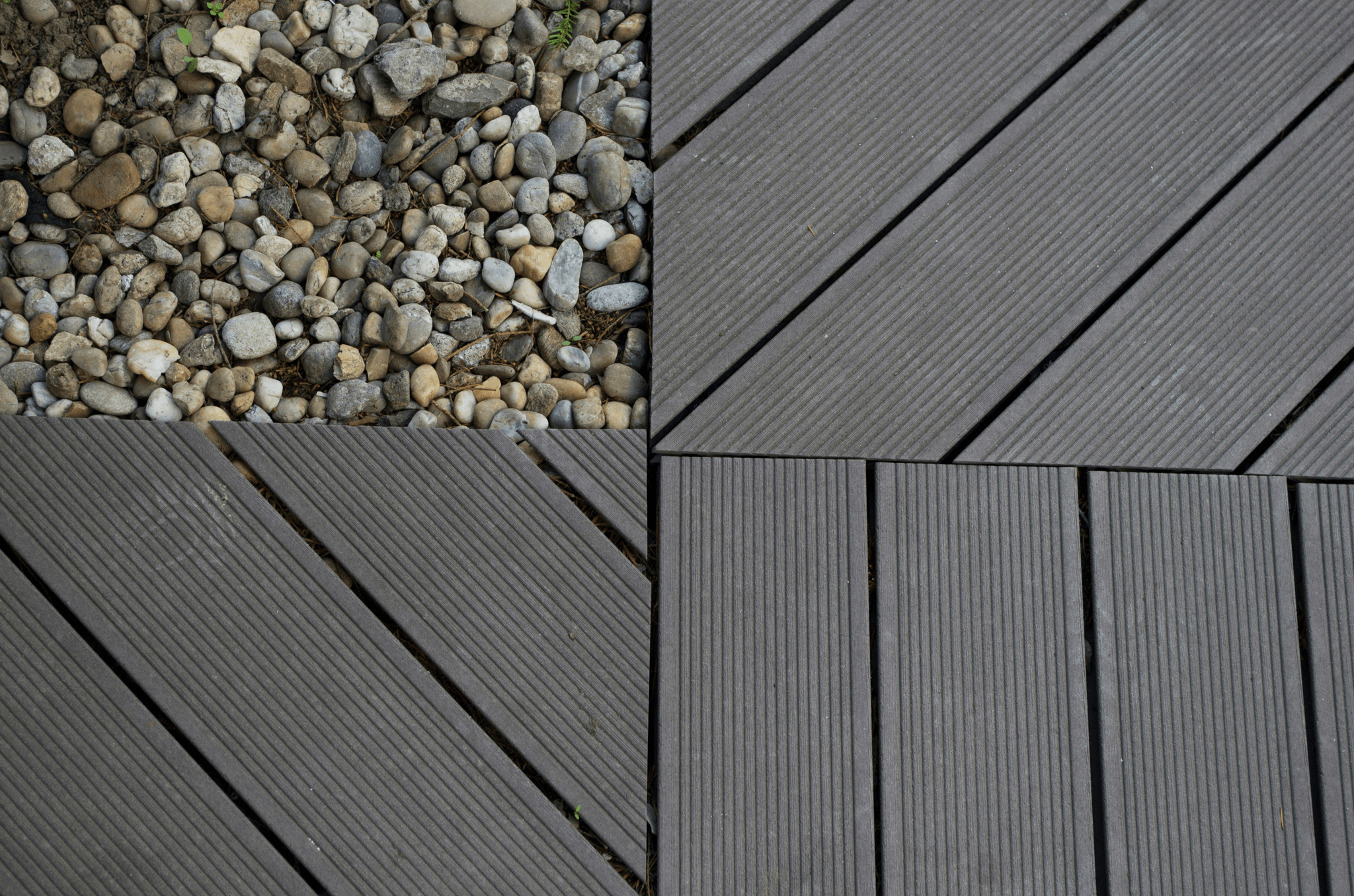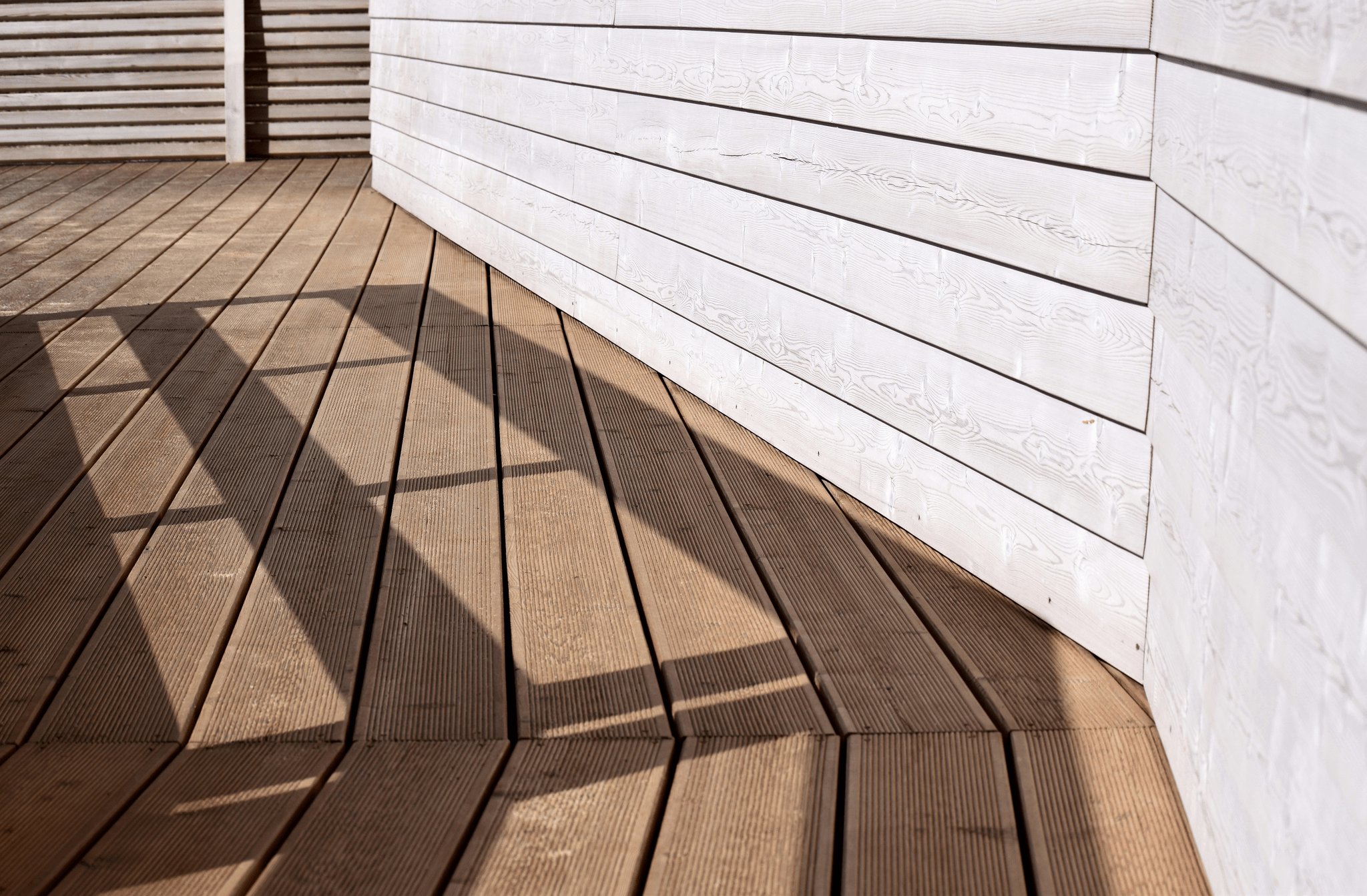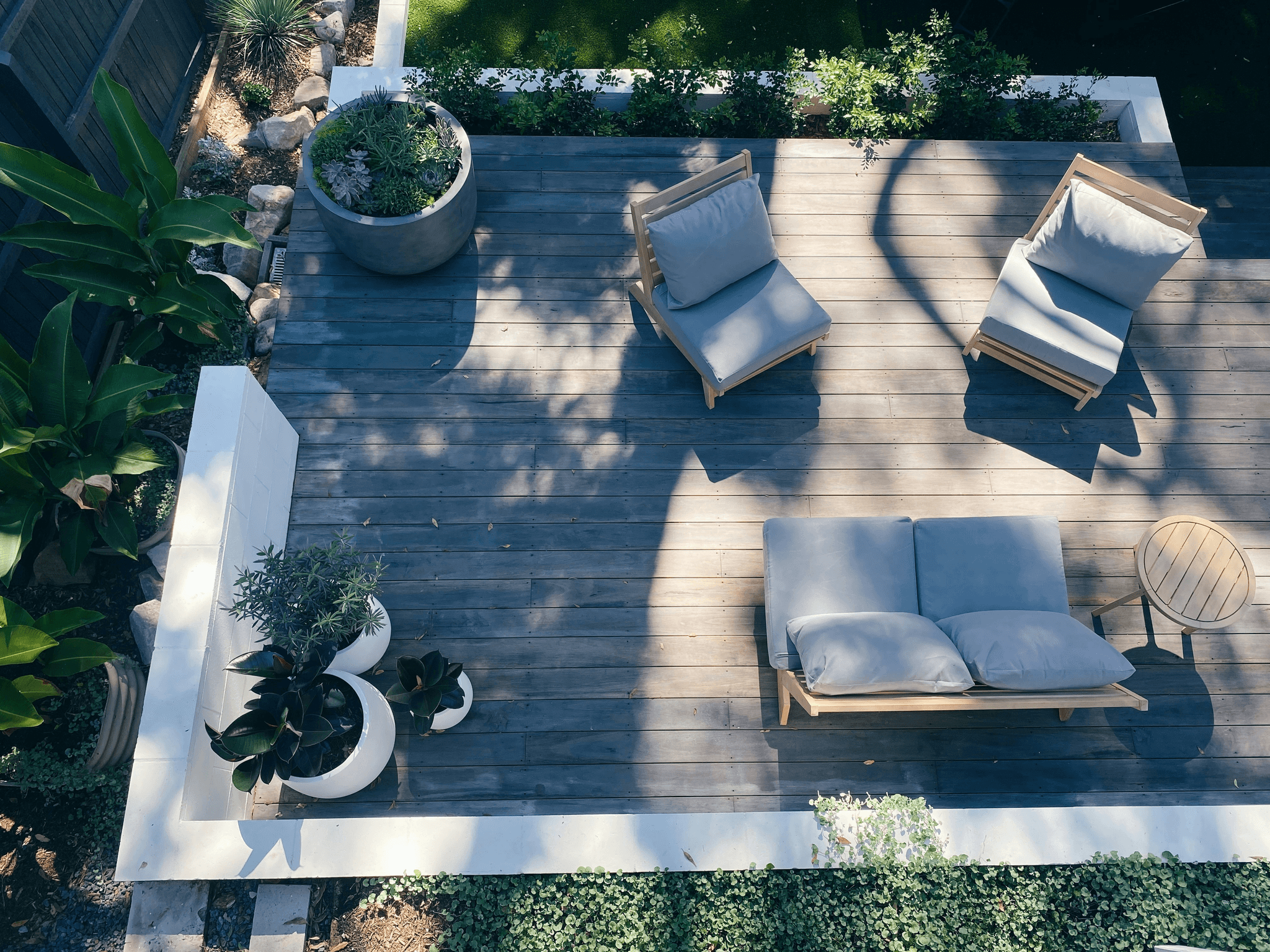Introduction

Understanding Composite Deck Pricing Trends
Composite decking has gained traction over traditional wood due to its durability and lower maintenance costs, which directly influences composite deck pricing trends. Homeowners are increasingly seeking materials that offer both longevity and style, leading to a surge in demand for composite wood decking boards. With various brands and types available, staying updated on pricing trends is essential for budget-conscious consumers.
Key Factors Influencing Composite Deck Costs
Several key factors play into the overall composite decking prices you might encounter during your shopping journey. Material quality, brand reputation, and even color choices can significantly impact the cost of synthetic lumber for decks. Additionally, regional variations can lead to differences in pricing; understanding these elements will help you navigate your options wisely.
The Rise of Composite Decking Popularity
The popularity of composite wood has skyrocketed as homeowners seek alternatives that are both eco-friendly and stylish. With advancements in technology creating more realistic-looking composite deck boards, many people find it hard to resist this modern take on outdoor flooring. As awareness grows around the benefits of using synthetic materials over traditional wood, it's no wonder that composite decking continues to dominate the market.
Exploring Composite Decking Options

Types of Composite Decking Materials
Composite decking typically falls into two main categories: capped and uncapped boards. Capped composite deck boards are coated with a protective layer that resists moisture and fading, making them ideal for areas prone to weather extremes. On the other hand, uncapped boards are more affordable but may require more upkeep over time, which can affect overall composite deck pricing.
Another consideration is the composition of the materials themselves; most composite lumber decking is made from a blend of recycled wood fibers and plastic. This combination not only enhances strength but also contributes to eco-friendliness—a big draw for many homeowners today. Additionally, synthetic lumber for decks offers various textures and colors to mimic natural wood while providing superior longevity.
Benefits of Composite Lumber Decking
One significant advantage of composite lumber decking is its low maintenance requirements compared to traditional wood options. Unlike natural wood, which often needs staining or sealing annually, composite deck boards resist fading and splintering without extensive upkeep. This translates into long-term savings on maintenance costs—something you’ll appreciate when evaluating overall composite decking prices.
Moreover, composite wood decking boards are designed to withstand harsh weather conditions without warping or cracking, ensuring your investment remains intact year after year. The durability factor means fewer repairs down the line; who wouldn’t want that? Plus, many brands offer warranties that reflect their confidence in product longevity—another reason why homeowners lean towards these modern materials.
Comparing Composite Deck Boards to Wood
When comparing composite deck boards to traditional wood options, several factors come into play beyond just initial cost considerations like composite deck pricing versus lumber prices. While wooden decks may have lower upfront costs, they often require more frequent maintenance such as staining or sealing every few years—costs that add up quickly over time. In contrast, investing in quality composite wood can save you both time and money in the long run.
Aesthetic appeal is another area where many find composites shine; with various finishes available that mimic natural grains beautifully without compromising performance features like slip resistance or color retention under UV exposure! Furthermore, synthetic options allow you greater flexibility when designing your space since they come in multiple colors and styles suited for any home design aesthetic.
In conclusion, exploring different types of composite decking materials reveals numerous benefits over traditional options—including lower maintenance needs and enhanced durability—that make them a worthy investment for any homeowner looking at their outdoor living spaces!
Breakdown of Composite Deck Pricing

When it comes to composite deck pricing, understanding the various components can save you a pretty penny. Composite decking has gained traction as a popular alternative to traditional wood, but what does that mean for your wallet? Let’s dive into the average costs, factors at play, and how regional differences can impact your overall investment.
Average Costs of Composite Decking
On average, the cost of composite decking ranges from $2 to $5 per square foot for materials alone. When you factor in installation and additional accessories, you might be looking at an overall price tag between $15 and $30 per square foot. While composite lumber decking might seem pricier upfront compared to wood options, its long-term benefits often justify the initial investment.
Factors Affecting Composite Decking Prices
Several factors influence composite decking prices beyond just material choice. For instance, the quality of synthetic lumber for decks plays a significant role; higher-quality boards tend to come with a heftier price due to their enhanced durability and aesthetic appeal. Additionally, market demand, local labor costs for installation, and even seasonal fluctuations can all contribute to varying composite deck pricing.
Regional Price Variations for Decking
Regional price variations are another crucial aspect when considering composite wood decking boards for your project. In areas where demand is high or where there are fewer suppliers offering competitive rates, you may find that composite decking prices soar above the national average. Conversely, regions with abundant suppliers or lower demand may present opportunities for better deals on both materials and installation services.
Installation Costs You Should Consider

When diving into composite deck pricing, installation costs can significantly influence your overall budget. Whether you opt for professional help or decide to tackle the project yourself, understanding these costs will ensure you’re prepared for what lies ahead. Let’s break down the options available to you.
Hiring Professional Installers
Hiring professional installers can provide peace of mind and a polished finish that DIY efforts might not achieve. The cost of hiring experts typically ranges from $5 to $15 per square foot, depending on your location and the complexity of your composite decking design. While this may seem steep, remember that skilled professionals bring experience with various composite lumber decking materials and techniques that could save you time and potential mishaps down the road.
Moreover, professional installers often have access to better tools and resources which can enhance the quality of your project. They also stay updated on local building codes and regulations regarding synthetic lumber for decks, ensuring compliance throughout the installation process. Ultimately, investing in expert installation could lead to a more durable and aesthetically pleasing deck while giving you more time to enjoy it.
DIY Installation: Is It Worth It?
DIY installation is an appealing option for many homeowners looking to save on labor costs associated with composite decking prices. However, before grabbing those power tools, consider whether you have the necessary skills and time commitment required for such a project. While installing composite deck boards yourself can cut costs significantly—sometimes by as much as 50%—it also comes with its own set of challenges.
If you're handy and enjoy home improvement projects, then taking on synthetic lumber for decks could be a rewarding experience that enhances both your skills and your home’s value. However, if you're unsure about measuring accurately or working with specific materials like composite wood decking boards, it might be best to leave it to the pros after all! Weighing potential savings against possible mistakes is crucial in deciding if DIY is truly worth it.
Additional Costs for Deck Accessories
Beyond just the price of composite decking itself lies a world of accessories that can elevate your outdoor space—often at an additional cost! Railing systems, lighting fixtures, built-in seating options—all these enhancements add functionality but will also impact overall composite deck pricing significantly. For instance, adding LED lights or stylish railings might increase expenses by several hundred dollars but could transform your deck into a stunning evening retreat.
Furthermore, don’t forget about maintenance accessories like cleaning solutions specifically designed for composite wood or protective coatings that help extend its lifespan without compromising aesthetics. Investing in quality accessories not only enhances usability but can also improve long-term durability—a win-win situation! So when budgeting for your new outdoor haven made from synthetic lumber for decks, make sure to factor in these additional elements as well.
Long-term Value of Composite Decking

When considering a new deck, the long-term value of composite decking is a crucial factor that can influence your decision. Unlike traditional wood, composite lumber decking offers significant benefits that can save you money over time. With its durability and low maintenance requirements, composite deck pricing often proves to be more economical than you might initially think.
Durability and Maintenance Cost Savings
One of the standout features of composite deck boards is their incredible durability. Made from a blend of wood fibers and recycled plastic, these materials resist warping, splintering, and decay better than their wooden counterparts. This means fewer repairs and replacements down the line, translating into substantial maintenance cost savings that make composite decking prices more appealing over time.
Moreover, the need for regular staining or sealing with synthetic lumber for decks is virtually eliminated. Homeowners can enjoy more leisure time rather than spending weekends on upkeep tasks like sanding or painting wood decks. When you factor in these savings into your overall composite deck pricing analysis, it becomes evident that investing in composite wood decking boards can lead to financial relief in the long run.
Eco-Friendly Benefits of Composite Wood
In addition to being cost-effective, composite wood offers eco-friendly benefits that appeal to environmentally conscious consumers. The use of recycled materials in creating composite lumber decking not only reduces waste but also promotes sustainability in construction practices. By choosing composite decking products made from reclaimed resources, homeowners are making a positive impact on the planet while enjoying all its advantages.
Composite wood also contributes to lower carbon footprints compared to traditional timber sourcing methods which often involve deforestation and habitat destruction. As awareness grows around environmental issues, many are opting for sustainable solutions like synthetic lumber for decks as part of their commitment to eco-friendliness. This green attribute adds another layer of value when assessing your options against standard wood choices.
Enhancing Property Value with Composite Decks
Investing in high-quality composite decking not only enhances your outdoor living space but also increases your property’s market value significantly. Real estate experts agree that well-maintained outdoor areas featuring durable materials like composite wood can attract potential buyers who appreciate low-maintenance solutions without compromising aesthetic appeal. Thus, when considering overall home investment strategies alongside current trends in home improvement projects, understanding how much value quality decks add becomes crucial.
Furthermore, properties equipped with attractive outdoor spaces tend to sell faster and at higher prices compared to those without them—especially if they feature modern materials such as composite deck boards known for longevity and style versatility. Ultimately, this means that even if initial costs seem higher when evaluating various options based on current market conditions around composite deck pricing; potential returns may far outweigh upfront expenses as you enhance both functionality and beauty within your backyard oasis.
Choosing the Right Composite Decking Supplier

Selecting the right composite decking supplier can significantly impact your overall satisfaction with your new outdoor space. With a plethora of options available, it’s crucial to research and compare various brands and products that fit your budget and aesthetic preferences. A well-chosen supplier not only provides quality composite deck boards but also ensures you receive value for your composite deck pricing.
Top Brands in Composite Decking
When it comes to composite lumber decking, several brands have established themselves as leaders in the industry. Trex, TimberTech, and Fiberon are just a few of the top names known for their durable and stylish synthetic lumber for decks. These brands offer a range of colors, textures, and styles, ensuring that you can find the perfect composite wood decking boards to match your vision while keeping an eye on those all-important composite decking prices.
In addition to these well-known brands, there are emerging players that provide innovative solutions at competitive prices. Brands like Deckorators and MoistureShield are gaining traction for their unique features such as enhanced slip resistance and moisture protection. By exploring different manufacturers, you can discover options that may offer better warranties or unique aesthetics in the realm of composite wood.
Why Choose Composite Decking Inc
Composite Decking Inc stands out as a reliable choice for homeowners seeking high-quality materials at reasonable prices. Their extensive range of products includes various styles of composite deck boards designed to withstand the test of time while requiring minimal maintenance compared to traditional wood options. With competitive pricing structures that align with current trends in composite deck pricing, they make it easier than ever to invest in lasting beauty.
Moreover, this company places a strong emphasis on customer satisfaction by offering personalized service tailored to each project’s specifics. Their knowledgeable staff is ready to assist you from selection through installation advice—ensuring you choose the right type of synthetic lumber for decks based on your needs and budget constraints. By opting for Composite Decking Inc., you're not just buying product; you're investing in support throughout your decking journey.
Evaluating Warranty and Customer Support
A significant aspect of choosing a supplier is understanding their warranty policies and customer support services related to their products—especially when considering long-term investments like composite wood decking boards. Look for suppliers who offer extended warranties that cover fading, staining, or structural integrity; this speaks volumes about their confidence in product durability amidst varying weather conditions.
Additionally, consider how accessible customer support is when issues arise or if questions need answering post-purchase; after all, no one wants to feel stranded after investing in high-quality materials! Reading reviews from previous customers can provide insight into how responsive companies are regarding concerns related to both warranty claims and general inquiries about composite decking prices.
Conclusion

In wrapping up our exploration of composite deck pricing and its myriad factors, it’s clear that choosing composite decking is not just a trend; it’s a wise investment. With the rise in popularity of synthetic lumber for decks, homeowners are increasingly drawn to the durability and aesthetic appeal of composite lumber decking. Understanding the nuances of composite decking prices can empower you to make informed decisions that suit your budget and lifestyle.
Key Takeaways on Composite Deck Pricing
When assessing composite deck pricing, remember that various factors play into the overall cost, including materials, installation, and regional variations. The average costs of composite deck boards may initially seem higher than traditional wood options, but consider long-term savings in maintenance and replacement. Ultimately, the value derived from investing in quality composite wood decking boards far outweighs any upfront expenses.
Understanding the Value of Composite Decking
The benefits of choosing composite wood extend beyond mere aesthetics; they include durability and resistance to weathering and pests—two key factors that can significantly impact your long-term costs. Eco-conscious homeowners will appreciate that many brands use recycled materials in their synthetic lumber for decks, making them an environmentally friendly choice as well. All these attributes contribute to enhancing property value while providing a beautiful outdoor space for years to come.
Making Informed Choices for Your Decking Project
To navigate the world of composite decking effectively, start by researching reputable suppliers who offer comprehensive warranties and excellent customer support. Compare different types of composite wood with an eye on durability and design options; you want something that complements your home while standing up against nature's elements! Armed with knowledge about composite deck pricing and product offerings, you'll be well-equipped to make choices that align with both your vision and financial plan.
